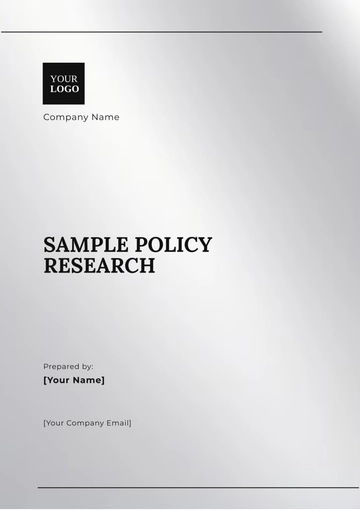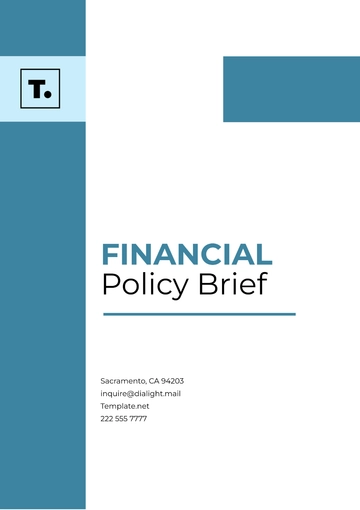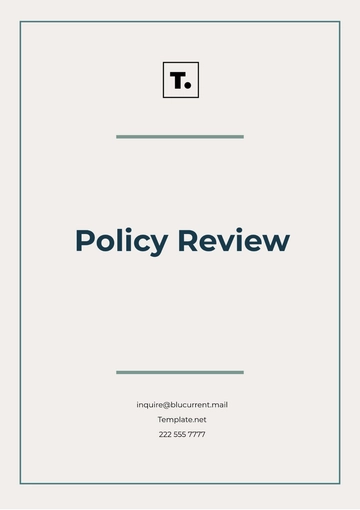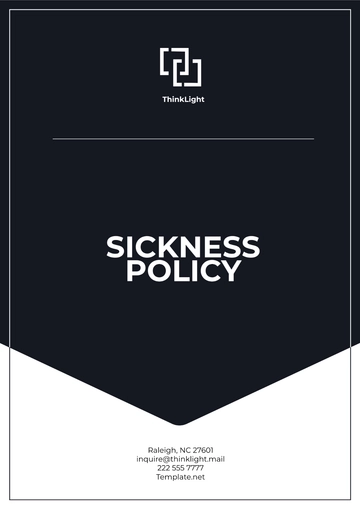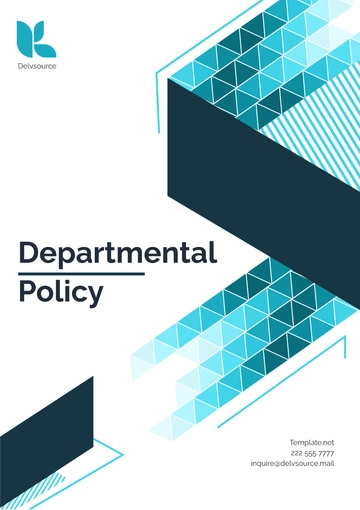Free Policy Impact Valuation Report
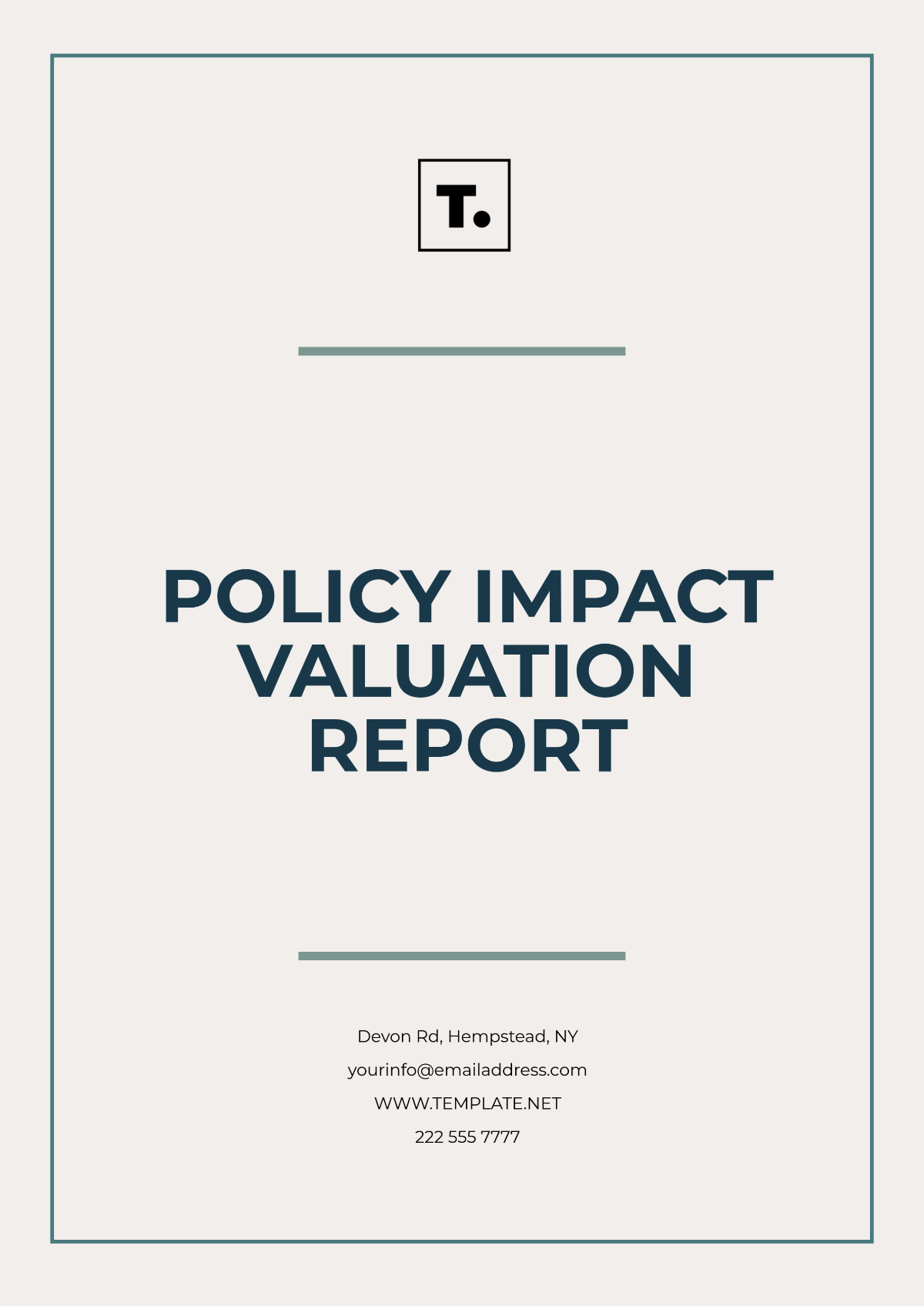
Introduction
This Policy Impact Valuation Report aims to assess the potential effects and outcomes of current and proposed policies by the year 2060. The report focuses on critical sectors such as environment, economy, health, and social equity to offer a comprehensive analysis of anticipated impacts. This extensive evaluation is intended to aid policymakers, stakeholders, and researchers in decision-making and future planning processes.
Environmental Impact
Overview
Environmental sustainability has become a core concern due to climate change, biodiversity loss, and the depletion of natural resources. By 2060, the policies implemented today will shape the global environment, potentially reducing carbon emissions, promoting renewable energy, and conserving ecosystems.
Projected Outcomes
The environmental policies under consideration are expected to achieve the following outcomes:
Reduction in global carbon emissions by 40% compared to 2020 levels.
Increase in renewable energy share to 70% of global energy consumption.
Protection and conservation of at least 50% of the world's endangered species.
Analysis
The initial analysis indicates that stringent implementation of environmental policies will result in a significant reduction in pollution levels and improved public health outcomes. However, challenges such as economic costs and the need for technological advancements remain hurdles to be overcome.
Economic Impact
Overview
Economic growth is often balanced against social welfare and environmental constraints. By 2060, policies fostering innovation, labor market reform, and sustainable industry practices will redefine global economic landscapes.
Projected Economic Indicators
Indicator | Projection for 2060 |
|---|---|
Global GDP Growth | 3% annually |
Unemployment Rate | 4% reduction from 2020 levels |
Income Inequality | Gini Index reduction to 30 |
Technological Advancements
The adoption of new technologies is expected to drive economic efficiencies, though it may also lead to disruptive changes in labor markets. Policies encouraging reskilling and education reform are considered critical to minimize negative impacts.
Health Impact
Overview
Health policies will significantly influence life expectancy, disease prevention, and healthcare accessibility by 2060. Preventative measures and universal healthcare coverage are emphasized to improve population health outcomes.
Anticipated Health Trends
Key health indicators projected for 2060 include:
Increase in global average life expectancy to 82 years.
Reduction in incidence rates of non-communicable diseases by 20%.
Achieving universal health coverage for over 90% of the global population.
Policy Challenges
While health policies are on track to achieve these outcomes, issues such as healthcare funding, infrastructure, and human resource shortages need addressing. Collaboration and international partnerships might provide solutions to these challenges.
Social Equity Impact
Overview
Social equity remains a priority for ensuring fair resource distribution, opportunities, and rights across diverse populations by 2060. Policies addressing education, gender equity, and social protection are vital in reducing disparities.
Social Equity Metrics
By 2060, targeted social policies are expected to yield improvements in the following areas:
Accessibility to quality education for 99% of children worldwide.
Reduction in gender pay gap to less than 10%.
Expansion of social safety nets covering at least 85% of vulnerable populations.
Barriers and Strategies
Despite projected improvements, barriers such as cultural resistance and policy enforcement inconsistencies remain. Global cooperation and adherence to international human rights standards are proposed strategies to bridge these gaps.
Conclusion
The Policy Impact Valuation Report by 2060 provides a roadmap for attaining sustainable development through strategic policy implementation. While projections indicate positive trends in environmental sustainability, economic growth, health improvements, and social equity, continual assessment and adaptation of policies are essential. Policymakers are encouraged to consider long-term impacts and global collaborations to achieve these ambitious objectives.
Report Templates @ Template.net
- 100% Customizable, free editor
- Access 1 Million+ Templates, photo’s & graphics
- Download or share as a template
- Click and replace photos, graphics, text, backgrounds
- Resize, crop, AI write & more
- Access advanced editor
The Policy Impact Valuation Report Template offered by Template.net is a comprehensive tool designed to evaluate and present the impacts of policy changes effectively. This customizable template is easily downloadable, allowing for quick access. It is fully editable in our AI Editor Tool, enabling you to tailor it to your specific needs. The template is also printable, making it ideal for both digital and physical use.
You may also like
- HR Policy
- Restaurant Policy
- Company Policy
- Accounting Policies and Procedures
- Website Policy
- Privacy Policy
- Safety Policy
- School Policy
- IT and Software Policy
- Law Firm Policy
- Construction Policy
- Interior Design Policy
- Travel Agency Policy
- Education Academic Policy
- Security Policy
- Real Estate Policy
- Expense Policy
- Software Policy
